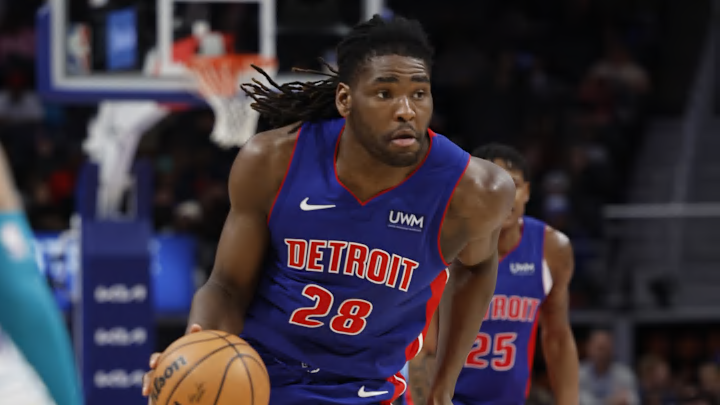If you enjoy cheering for a bad team with financial flexibility, then you should probably be a fan of the Detroit Pistons.
At 6-40 the Pistons are once again the worst team in the NBA, but just like last year, will head into the offseason as one of the leaders in cap space. Yay!
How much cap space has yet to be determined, as the Pistons could make moves at the trade deadline that eat into their largesse. Bojan Bogdanovic's partially guaranteed final year also gives them a way to use or create more money if needed.
It will also be affected by the NBA salary cap, which is not going up as much as originally projected according to Shams Charania amongst others:
The NBA informed teams today that it is projecting the 2024-25 salary cap to be $141 million — $1M lower than previous June 30, 2023 projection. The salary cap this season was set for $136M.
— Shams Charania (@ShamsCharania) January 30, 2024
So it's still going up but by $1 million less than was projected, setting the salary cap for next season at $141 million. The Pistons already have plenty of future money available, so will this matter?
The NBA salary cap and the Detroit Pistons
The short answer is not really. This slight dip from last year's projection to this year's reality will mostly affect max players who signed deals last summer, as their salaries were based on percentages of a cap that was projected to be a million dollars higher.
If your salary was based on 35 percent of the projected cap and that cap turned out to be lower, then you are getting less for that percentage. Bad news for Jaylen Brown, who will now be getting slightly less on his supermax deal. I hope he can still pay rent.
The Detroit Pistons don't have anyone that falls into that category, so their players were unaffected by the dip.
And it doesn't make much difference for a team that is already going to have more cap space than they know what to do with. The Pistons only have seven players under contract for next season and that's counting Bojan Bogdanovic, who can be bought out for $2 million.
Even with Bogdanovic, the Pistons only have around $74 million in salary, so could have upwards of $60 million in cap space.
That would be great if there were a plethora of free agents to spend it on, but that list is dwindling fast and the players that remain as realistic targets aren't exactly needle movers.
If Detroit can't pull off a big trade between the trade deadline and draft day, they will be stuck looking for ways to spend that cap space in a weak market, not a great position for a desperate GM to be in.
